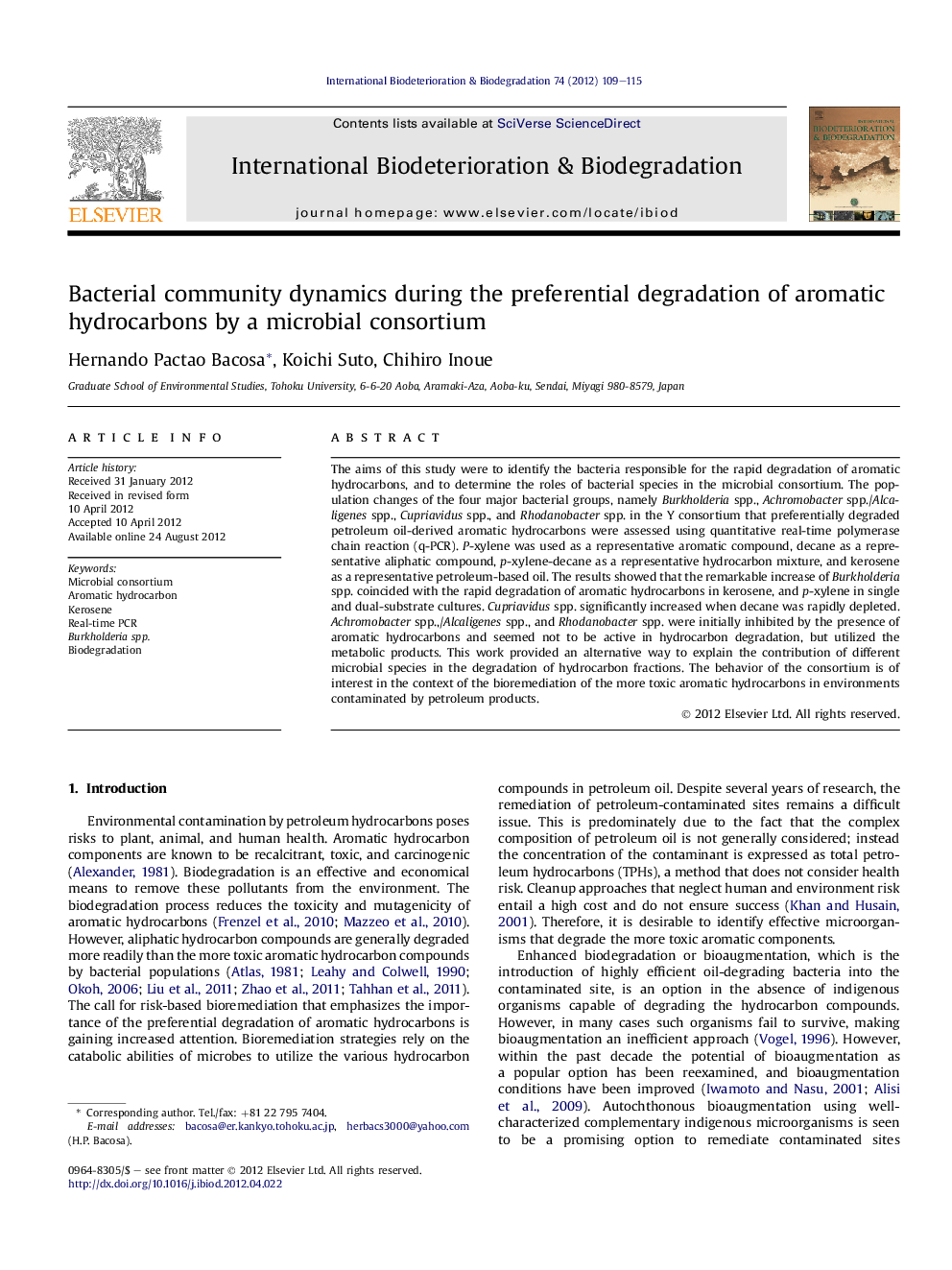| کد مقاله | کد نشریه | سال انتشار | مقاله انگلیسی | نسخه تمام متن |
|---|---|---|---|---|
| 4365086 | 1616341 | 2012 | 7 صفحه PDF | دانلود رایگان |

The aims of this study were to identify the bacteria responsible for the rapid degradation of aromatic hydrocarbons, and to determine the roles of bacterial species in the microbial consortium. The population changes of the four major bacterial groups, namely Burkholderia spp., Achromobacter spp./Alcaligenes spp., Cupriavidus spp., and Rhodanobacter spp. in the Y consortium that preferentially degraded petroleum oil-derived aromatic hydrocarbons were assessed using quantitative real-time polymerase chain reaction (q-PCR). P-xylene was used as a representative aromatic compound, decane as a representative aliphatic compound, p-xylene-decane as a representative hydrocarbon mixture, and kerosene as a representative petroleum-based oil. The results showed that the remarkable increase of Burkholderia spp. coincided with the rapid degradation of aromatic hydrocarbons in kerosene, and p-xylene in single and dual-substrate cultures. Cupriavidus spp. significantly increased when decane was rapidly depleted. Achromobacter spp.,/Alcaligenes spp., and Rhodanobacter spp. were initially inhibited by the presence of aromatic hydrocarbons and seemed not to be active in hydrocarbon degradation, but utilized the metabolic products. This work provided an alternative way to explain the contribution of different microbial species in the degradation of hydrocarbon fractions. The behavior of the consortium is of interest in the context of the bioremediation of the more toxic aromatic hydrocarbons in environments contaminated by petroleum products.
► The key roles of the major bacterial genera in the Y consortium were determined.
► The growth of Burkholderia coincided with the degradation of aromatic hydrocarbons.
► Cupriavidus was identified as the main degrader of aliphatic hydrocarbons.
► Achromobacter/Alcaligenes and Rhodanobacter were inhibited by aromatic hydrocarbons.
► They did not degrade hydrocarbons, but utilized the metabolic intermediates.
Journal: International Biodeterioration & Biodegradation - Volume 74, October 2012, Pages 109–115